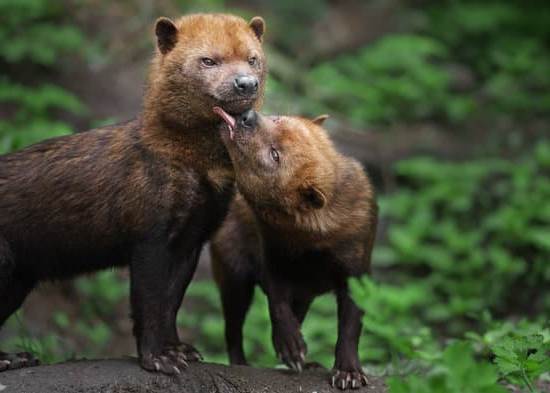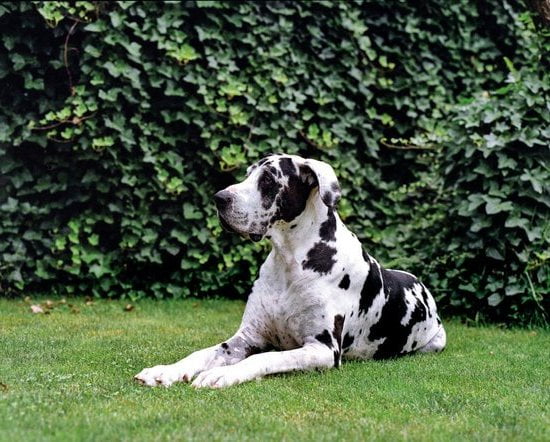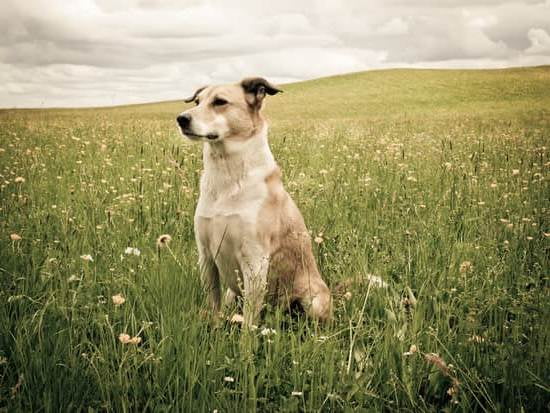Training your dog to pee in the backyard is an essential aspect of responsible pet ownership. Not only does it enhance cleanliness and hygiene in your home, but it also provides your pet with a sense of routine and structure. In this article, we will explore the importance of teaching your dog to use a designated area for peeing and provide you with valuable tips on how to achieve this goal effectively.
As a dog owner, understanding why it is crucial to train your furry friend to pee in the backyard is the first step towards successful training. This section will delve into the benefits of creating a designated pee area and how it can contribute to a harmonious living environment for both you and your pet. Additionally, we will discuss the various factors that make training your dog an important aspect of their overall well-being.
Assessing your dog’s current peeing habits and behavior is a fundamental part of the training process. By understanding your pet’s natural instincts and tendencies, you can tailor the training approach to suit their specific needs.
Moreover, creating a designated pee area in your backyard and establishing a routine for regular potty breaks are vital components of effective training. This section will provide practical insights into how to identify the most suitable spot in your yard for this purpose and establish a consistent schedule for your dog’s bathroom breaks.
Assessing Your Dog’s Current Peeing Habits and Behavior
Understanding your dog’s current peeing habits and behavior is crucial in successfully training them to pee in the backyard. Take note of when and where your dog usually goes to relieve themselves. Does your dog have a specific area in the yard where they tend to pee? Are there any patterns or signs that indicate when they need to go outside? By closely observing your dog’s behavior, you can better tailor your training approach to suit their needs.
Monitoring Your Dog’s Bathroom Schedule
Keep track of the times when your dog typically needs to use the bathroom. Note if they have a regular schedule for peeing or if it seems more sporadic. Understanding their bathroom habits will help you establish a routine for potty breaks, making it easier to train them to pee in the backyard at specific times.
Recognizing Signs of Needing to Pee
Pay attention to any behaviors or signals that indicate when your dog needs to go outside. This could include pacing, whining, sniffing around, or heading towards the door. By recognizing these cues, you can proactively take your dog outside before accidents happen indoors.
Assessing your dog’s current peeing habits and behavior provides valuable insights that will inform the rest of your training process. By understanding their bathroom schedule and recognizing signs of needing to pee, you can effectively create a plan for transitioning their bathroom activities to the designated area in your backyard.
Creating a Designated Pee Area in Your Backyard
One of the key steps in training your dog to pee in the backyard is creating a designated pee area for them. This is important as it helps establish a routine and a specific spot for your dog to relieve themselves, making it easier for you to maintain cleanliness and hygiene in your yard.
When creating a designated pee area, consider choosing an area that is easily accessible to your dog and away from high-traffic areas. You can use materials such as gravel, mulch, or synthetic grass to create a distinct surface for your dog to associate with peeing. It’s also essential to choose an area that has good drainage to prevent puddles from forming after your dog pees.
Additionally, you can mark the designated pee area with visual cues such as rocks, potted plants, or a small fence to help your dog identify the spot. This can help reinforce the idea that this particular area is where they should go to relieve themselves. Consistency is key when introducing your dog to the designated pee area, so be sure to take them there regularly during training sessions.
In addition to creating a designated pee area, it’s important to properly maintain and clean the spot. Make sure to regularly remove any waste and rinse the area with water to prevent odors from building up. By establishing a clear and well-maintained pee area in your backyard, you can effectively train your dog to consistently relieve themselves in that location.
Establishing a Routine for Regular Potty Breaks
Creating a routine for regular potty breaks is essential when training your dog to pee in the backyard. By establishing set times for potty breaks, you can help your dog understand when and where they should be relieving themselves. Here are some tips for creating a potty break schedule:
- Schedule potty breaks: Set specific times throughout the day for your dog to go outside and use the designated pee area. This can include first thing in the morning, after meals, before bedtime, and so on.
- Be consistent: Dogs thrive on routine, so try to stick to the same schedule every day. Consistency will help reinforce the behavior you want from your dog.
- Use cues: Use specific cues or commands when it’s time for your dog to go outside. This could be saying “potty time” or ringing a bell by the door.
- Monitor behavior: Pay attention to your dog’s behavior and body language to anticipate when they may need to go outside. This can help prevent accidents indoors.
By establishing a routine for regular potty breaks, you can effectively teach your dog where and when they should be peeing in the backyard. Consistency and patience are key in successfully training your dog, so be sure to stick with the schedule you create.
Using Positive Reinforcement and Rewards for Peeing in the Designated Area
One of the most effective ways to train your dog to pee in the backyard is through positive reinforcement and rewards. Dogs respond well to positive feedback, so it’s essential to praise and reward them when they pee in the designated area. This will help reinforce the behavior and encourage them to continue using that spot for their potty breaks.
When your dog pees in the backyard, immediately give them verbal praise, such as “good boy” or “good girl,” along with gentle petting. You can also give them small, tasty treats as a reward for their good behavior. Using consistent and immediate positive reinforcement will help your dog understand that peeing in the designated area is a desirable action.
In addition to verbal praise and treats, you can also use other forms of rewards such as their favorite toy or extra playtime. By associating peeing in the backyard with positive experiences, your dog will be more motivated to do so consistently. It’s important to be patient and consistent with this training method as it may take some time for your dog to fully grasp the concept.
| Positive Reinforcement Methods | Benefits |
|---|---|
| Verbal praise | Reinforces good behavior and strengthens bond between owner and dog. |
| Treats | Motivates dogs to repeat desired behavior. |
| Favorite toys or extra playtime | Provides additional positive reinforcement for peeing in the right spot. |
Dealing With Accidents and Setbacks During the Training Process
Even with the best efforts and intentions, accidents are bound to happen during the process of training your dog to pee in the backyard. It’s important to remember that setbacks are natural and should be expected as part of the learning curve for both you and your dog. When accidents occur, it’s crucial to remain patient and refrain from scolding or punishing your dog, as this can be counterproductive and lead to further setbacks.
Instead, focus on reinforcing positive behavior by using techniques such as redirecting your dog to the designated pee area when accidents happen, and giving plenty of praise and rewards when they successfully use that area. Consistency is key here; be sure to consistently guide your dog back to the designated spot every time an accident happens.
In addition, it’s important to thoroughly clean up any accidents with an enzymatic cleaner specifically designed for pet messes. This will help eliminate any lingering odors that may attract your dog back to the same spot. Keeping the designated pee area clean and odor-free will also encourage your dog to continue using that specific area for their bathroom needs.
| Dealing With Accidents | Setbacks |
|---|---|
| Accidents are natural during training | Remain patient |
| Redirect dog to designated pee area | Consistently clean up accidents |
Tips for Maintaining the Designated Pee Area and Keeping It Clean
Once you have successfully created a designated pee area in your backyard and trained your dog to use it, it’s essential to maintain the area and keep it clean to ensure your dog continues to use it. Here are some tips for maintaining the designated pee area and keeping it clean:
- Regularly pick up waste: Make it a habit to scoop up your dog’s waste from the designated pee area at least once a day. This will help prevent the area from becoming unsanitary and unpleasant.
- Use pet-friendly cleaners: When cleaning the designated pee area, avoid using harsh chemicals that may be harmful to your dog. Instead, opt for pet-friendly cleaners that are safe for both your dog and the environment.
- Rinse the area regularly: Hose down the designated pee area with water on a regular basis to flush away any remaining urine and minimize odors. This will also help prevent the grass or plants in the area from dying due to urine buildup.
By following these tips, you can ensure that the designated pee area in your backyard remains clean and appealing for your dog to use. Consistent maintenance of this area will also help reinforce your dog’s behavior of peeing in the designated spot, making it easier to uphold their training.
Remember, maintaining a clean designated pee area is not only beneficial for your dog’s hygiene but also for the overall cleanliness of your backyard. By taking proper care of this space, you can create a more pleasant environment for both your dog and yourself.
Consistency and Patience
Consistency Is Key
One of the most important aspects of successfully training your dog to pee in the backyard is consistency. This means being consistent in your routine, expectations, and reinforcement. Dogs thrive on predictability and routine, so it’s essential to take your dog outside to their designated pee area at the same times every day.
Consistency also applies to the commands you use and the rewards you give for good behavior. By being consistent, you are setting clear expectations for your dog, which will help them understand what is required of them.
Patient Training
Patience is another critical factor when it comes to training your dog. It’s important to remember that learning a new behavior takes time, especially for dogs. Some may pick up on the training quickly, while others may need more time to understand and obey commands.
It’s crucial to remain patient and not get frustrated if your dog doesn’t immediately grasp the concept of peeing in the backyard. Yelling or punishing them for accidents will only set back the training process. Instead, be patient, understanding, and consistent with your training efforts.
Setting Realistic Expectations
It’s essential to have realistic expectations when it comes to training your dog to pee in the backyard. Some dogs may take longer than others to fully understand what is expected of them. Set achievable goals for your dog based on their individual progress and personality. Remember that setbacks are normal during any training process, but by remaining consistent and patient, you can help your dog successfully learn this important behavior.
By maintaining consistency and patience throughout the training process, you can effectively teach your dog to pee in the backyard. These key factors will not only help in successful potty training but also strengthen the bond between you and your furry friend.
Seeking Professional Help if Necessary for Difficult Cases and Behavioral Issues
In some cases, despite your best efforts, you may find that training your dog to pee in the backyard is a challenging task. There are several reasons why your dog may be having difficulty with the training process, including behavioral issues, past trauma, or health problems. When all else fails, it may be time to seek professional help.
Professional dog trainers and behaviorists have the knowledge and expertise to assess your dog’s specific needs and develop a customized training plan. They can provide invaluable guidance on how to address any underlying behavioral issues that may be contributing to your dog’s reluctance to pee in the designated area. Additionally, they can help you modify your training techniques to better suit your dog’s individual personality and learning style.
It’s important to remember that seeking professional help is not a sign of failure, but rather a proactive step towards helping your dog overcome their potty training challenges. With the right guidance and support, even the most difficult cases can be successfully resolved.
By working closely with a professional, you can gain valuable insight into your dog’s behavior and build a stronger bond based on trust and understanding. So if you find yourself struggling to train your dog to pee in the backyard, don’t hesitate to reach out for expert assistance.
Frequently Asked Questions
How Do I Get My Dog to Pee in My Yard?
To get your dog to pee in your yard, you can start by taking them out frequently, especially after meals and naps. Use positive reinforcement when they go in the right spot, and consider creating a designated bathroom area with training pads or gravel. Be patient and consistent with the training process to establish this behavior.
How Do I Train My Dog to Go to the Bathroom in the Backyard?
Training your dog to go to the bathroom in the backyard involves creating a routine and sticking to it. Take them out at regular intervals and reward them when they use the designated area. Avoid scolding or punishing accidents indoors, as this can confuse your dog. With time and consistency, they will learn to associate the backyard with going potty.
How Do You Retrain a Dog to Pee Outside?
Retraining a dog to pee outside may be necessary if they have developed indoor habits. Start by thoroughly cleaning any indoor accident spots to remove any lingering scent markers that may attract them back.
Establish a consistent schedule for outdoor bathroom breaks, rewarding them each time they go outside. Supervision and patience are key while retraining your dog, as it may take time for them to unlearn their previous habits.

Welcome to the blog! I am a professional dog trainer and have been working with dogs for many years. In this blog, I will be discussing various topics related to dog training, including tips, tricks, and advice. I hope you find this information helpful and informative. Thanks for reading!





